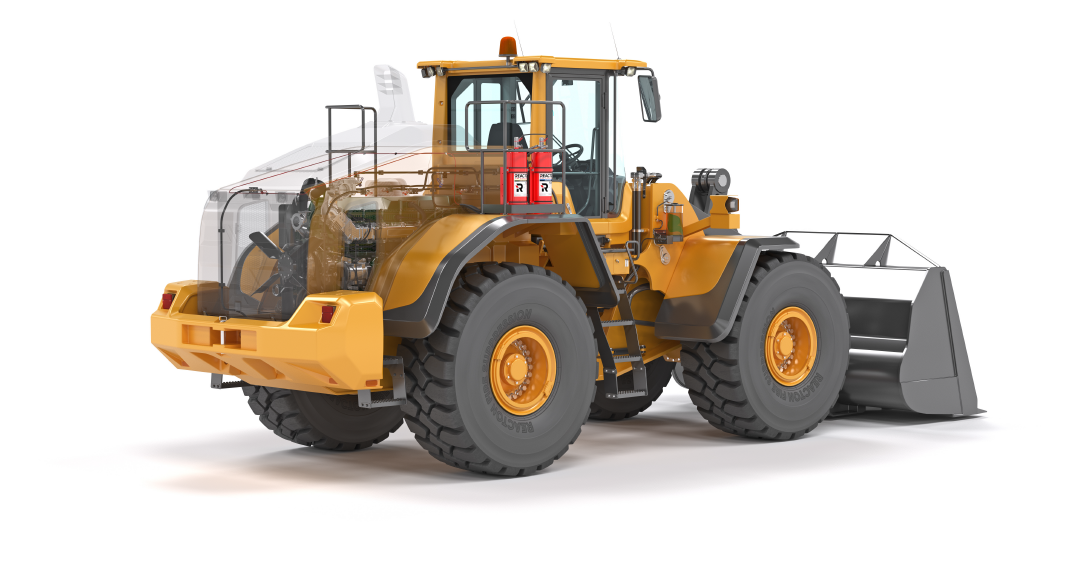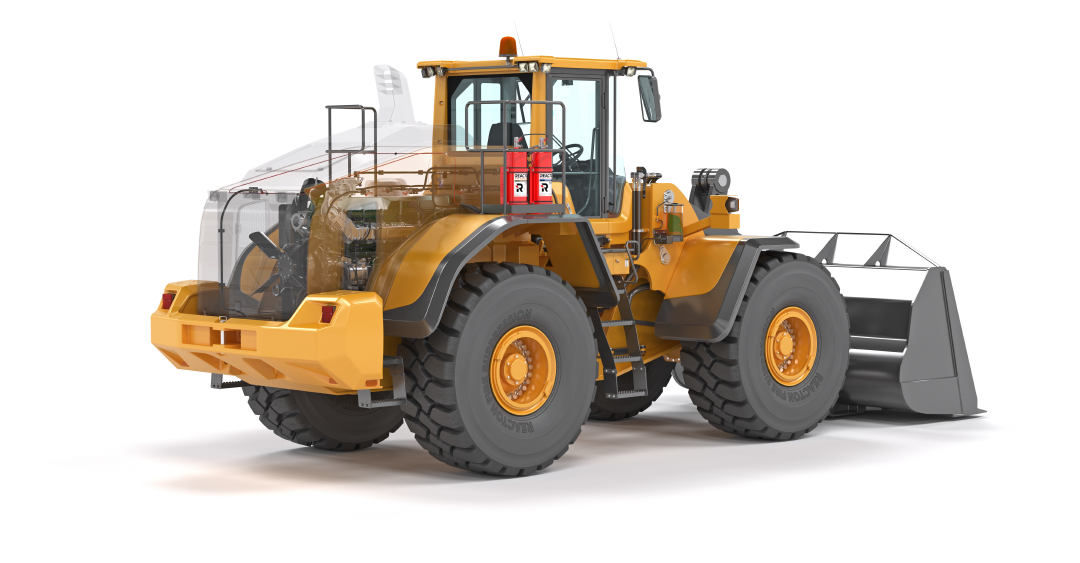
Fires within the heavy plant machinery industry are currently a prevalent and increasing issue. I sat down with Mark Scutt, Director of Fireward Fire Suppression Sales, to discuss why we are seeing more fires in heavy machinery engines.
“As manufacturers drive efficiencies to lower carbon output and improve air quality to meet the engine criteria several technological techniques are employed. These technologies are set out to make fossil-fueled engines more efficient, ensuring we harness as much power from the combustion chamber as possible.
The risk associated with this is heat, the right amount of heat along with oxygen and the introduction of a fuel will produce fire.
In the past few years, we have seen the addition of turbos, DPF filters and of course higher burning temperatures when detonating the fuel in the chamber. The engine components and the engine bay become very hot especially immediately after an engine has been turned off.

The majority of fires we have seen have been in and around the turbo. Turbos run at high temperatures and become superheated surfaces, data shows that they can run between 1200 and 1400 degrees Celsius. It’s not just the turbo, the exhaust gasses upon leaving an engine are slowed to spool the turbo causing the immediate exhaust manifold around to absorb the heat much more than a conventional non-turbo engine where the gasses would be pushed along and escape much more easily.
The diesel particulate filters are designed to filter particulate matter, to achieve this an internal temperate of around 500 degrees Celsius is required.
In order to create better air quality, you need to burn more in the combustion chamber, and of course the more of the fuel you can burn with less exhaust, detonating as much of the fuel content as possible. This means detonating at higher temperatures (which fuel injection allowed when developed) to make more power with less exhaust.
Common high-temperature fire risks in an engine bay can be identified as the turbo, DPF system and exhaust system. With these extreme temperatures, any oil, hydraulic or lubrication fluids coming into contact can create a devastating fire in an instant. In addition to this, the build-up of dust and debris typically found in the working environments of these machines are sure to increase the vulnerability to fire."
Our heavy equipment fire suppression systems are A+ rated and certified to P-Mark SPCR 199 and require no electrical power for activation, offering you 24/7 protection. By extension, our systems are designed and tested to work under the harshest conditions in any environment, offering you the very best standard of protection.
For more information on Reacton Fire Suppression products, please get in touch with the team by emailing info@reactonfire.com or call us on + 44 (0)800 0306526.
These Stories on Heavy Equipment Automatic Fire Suppression
Reacton HQ - UK and Europe
14 Baynes Place, Waterhouse Business Park, Chelmsford, Essex, CM1 2QX, UK
Reacton Americas
23335 N 18th Dr #140, Phoenix,
AZ 85027, United States
Reacton UAE
SIDRA Tower, Office 905,
Sheikh Zayed Road, Dubai, UAE
No Comments Yet
Let us know what you think